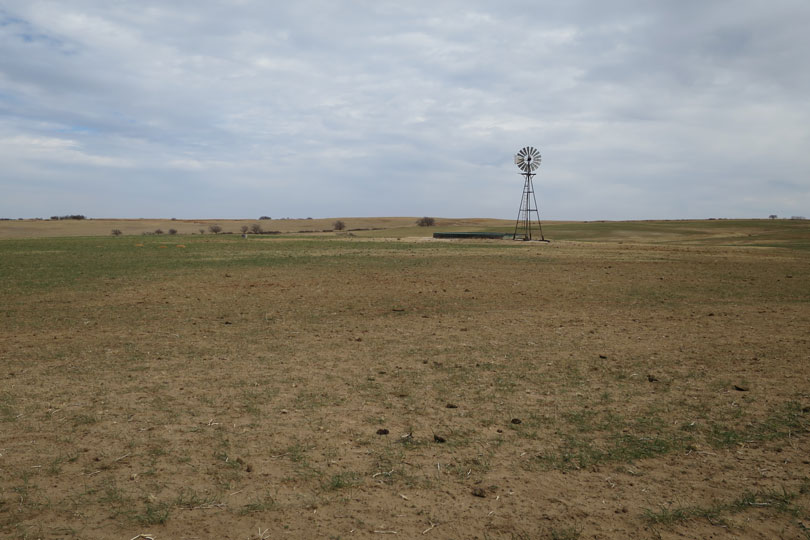By Jessica Domel
Multimedia Reporter
Parts of the Texas Panhandle received some much-needed precipitation over the weekend, while others missed out. Although the rain was a welcome guest, more is needed to help crops grow and replenish drought-stressed pastures.
“Up to this point, across the Texas High Plains, we received anywhere from three-tenths of an inch to three-quarters of an inch (this past weekend). That has brought, in some areas, our annual precipitation up to an inch,” Dr. Jourdan Bell, assistant professor and agronomist for the Texas A&M AgriLife Research and Extension Center in Amarillo, said in an interview with the Texas Farm Bureau Radio Network.
Much of the region has received less than half an inch of rain all year.
“This region is very dependent upon winter precipitation usually in the form of snowfall. That is critical, not just for our crop producers as we’re moving into summer cropping, but also for our native range. This rainfall, while definitely not enough to break the current drought, was very beneficial,” Bell said.
In mid-April, the Texas A&M Forest Service issued several bulletins warning of high fire danger in the Panhandle due to high winds, dry weather conditions and a low dew point.
The dry weather stressed more than local fire departments battling hundred-acre-plus fires.
Ranchers in many areas face dire conditions as grazing lands dry up.
“Our livestock producers are definitely having to make tough decisions. In this region, producers rely heavily on winter wheat for winter and spring forage. Because we did not have the winter precipitation, our wheat pasture really has started to decline,” Bell said. “The stocking rate for how much a wheat pasture could carry was not where it has been in previous years.”
As a result, many ranchers are having to pull cattle off pastures earlier than intended. The number of cattle going into feedlots is on the rise.
“On our native range, there has been discussion, especially where the native range was stocked heavily throughout the winter, that if we don’t get beneficial spring rainfall, then they’re going to have to start moving cattle off of our native range as well,” Bell said.
High winds have damaged some wheat crops. Some farmers have decided to terminate their wheat with intentions to plant cotton on that ground.
“Fortunately, we still do have very good subsoil moisture. We had above average precipitation during August and September of 2017. In most areas, we still have very good moisture anywhere from four to eight inches in the subsoil layers and further down,” Bell said.
Farmers who irrigate will likely have to pre-water the soil before planting starts near Amarillo over the next seven to 10 days. Some farmers have already started planting near Lubbock and further south.
“In many cases farmers are making sure they wet down to where the moisture is just so they can ensure there’s a good soil profile moving into the cropping season,” Bell said.
Those who have limited well capacity may not have the water supply to meet water demands in the summer, especially if conditions get very hot and windy. So, farmers have important decisions to make, according to Bell.
“I’ve visited with many farmers who are just sitting back and evaluating conditions. Fortunately, with grain sorghum producers, we still have some time there. They’re going to wait and plant with rain. Our dryland cotton producers are really evaluating current conditions and trying to decide how long they’re willing to wait for rain,” Bell said.
Some farmers have started using residue from past crops, cover crops or other methods to maintain moisture in the arid region.
“Across this region, producers definitely are very proactive in managing residue,” she said. “Residue, although it’s not a live cover, is very important because it does minimize evaporative losses. Especially where we see farmers who are out pre-irrigating, it’s very important to have that residue there because the residue will help improve the efficiency of the pre-irrigation.”
Heavy residue can slow down the warming of the soil, according to Bell, so that should

